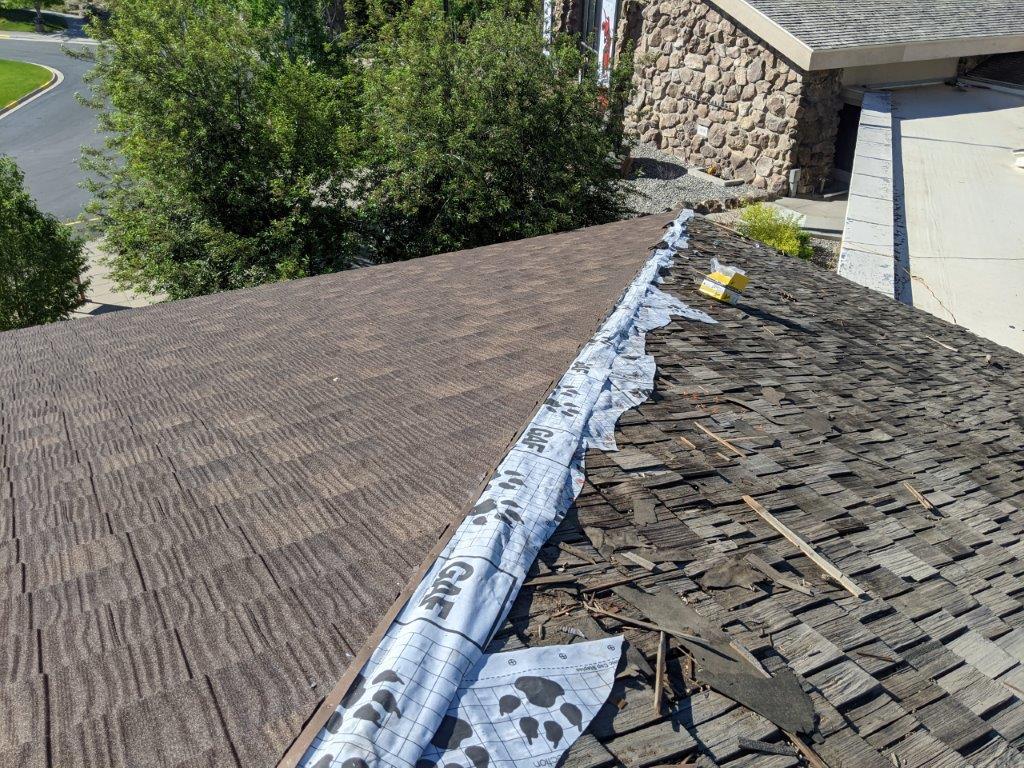Replacing your roof comes at a steep cost in many situations, so most homeowners turn to insurance to shoulder the financial burden. However, insurance doesn’t always cover everything, so you should know your policy limitations. Before starting a roof replacement, learn what insurance will not cover to protect yourself from unexpected costs.
What Insurance Typically Covers for Roof Replacement
Generally, homeowner’s insurance policies cover roof replacement if the damage is caused by an unpreventable accident, such as natural disasters (hail, wind, or fire) or incidents beyond your control (like vandalism or a tree falling on your roof). While insurance policies vary, these are often the most common types of damages covered.
Claims Process for Roof Replacement
After an event occurs and you suspect potential damage to your property, it is always in your best interest to have a professional, like Sprague Roofing & Exteriors assess the damage. If we or other professionals find claim-worthy damage to your home, then you would need to file a claim with your insurance company. The process usually involves an insurance adjuster visiting your home to assess the damage, determine the cause, and estimate the repair cost. The insurance company will then compare the repair costs against the depreciated value of your roof and offer a payout based on these factors.
In many cases, you will also have to pay a deductible for roof replacement. While this concern can put homeowners on edge, it’s important to remember that each insurance policy varies, and you should review yours carefully to understand the terms.
What Insurance Does Not Cover for Roof Replacement
Insurance doesn’t typically cover normal wear and tear from age and weather exposure. This includes things like shingle deterioration, corrosion, and other gradual damage that happens over time. Maintaining your roof can help to avoid these types of damages, so it’s important to stay on top of things to help your roof last as long as possible.
With that in mind, insurance companies expect homeowners to perform routine maintenance on their roofs. Lack of proper maintenance can lead to preventable damages, which are generally not covered by insurance. Cosmetic damages, or those that don’t impair the overall functioning and durability of your roof, are also typically excluded. Examples include discoloration, chipping, or minor dents.
Deductibles for Roof Replacement
A deductible is the amount of the claim that you’re responsible for paying before your insurance kicks in. With a $1000 deductible, for example, you’ll pay the first $1000 of any covered damage, after which insurance pays the rest up to your policy amount.
Deductibles generally apply to roof replacement. However, the amount varies based on your policy and the cause of the damage. Check your policy or consult with your insurance company to understand your deductible before starting any work.
Exceptions and Special Cases
There are occasions when your insurance might cover certain damages typically excluded from coverage. These could include exceptional incidents like damage from a fallen aircraft or a vehicle crashing into your home.
Not only that, your deductible can sometimes be waived or reduced. This can happen if the damage is extensive or was caused by specific natural disasters. These kinds of exceptions are usually listed in your policy, so read it thoroughly to find out what might affect your claim.
Tips for Maximizing Insurance Coverage for Roof Replacement
There are a few ways you can maximize your insurance coverage for a roof replacement. Always keep records of your roof maintenance and repairs, including receipts, photographs, and inspection reports. This evidence can help you prove to your insurer that the damage wasn’t due to neglect or lack of maintenance.
Hiring a trusted roofing company, like Sprague Roofing, can also strengthen your claim. They can help document the damage, make informed repair estimates, and liaise directly with your insurance company.
Get Your Roof Replacement Covered to Keep Costs Down
Understanding what your insurance does and does not cover for a roof replacement helps prepare you for potential expenses and maximize your coverage. Remember to maintain your roof properly, document all repairs and maintenance, and work with reputable roofers whenever possible to get the most out of your policy.
For expert advice or assistance with your roofing needs and insurance claims, don’t hesitate to reach out to Sprague Roofing. We offer top-quality roof repair and replacement services for roofing solutions and repairs. Contact us today for the best of the best in roofing.

